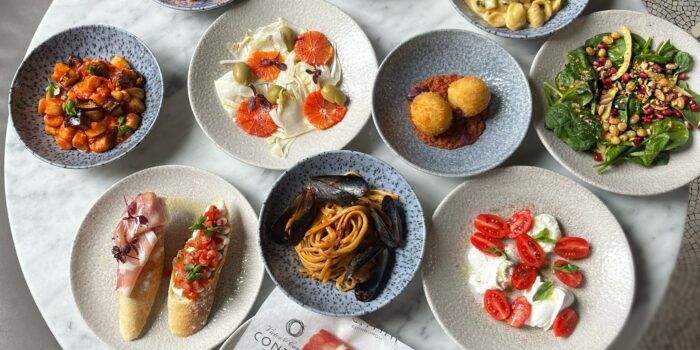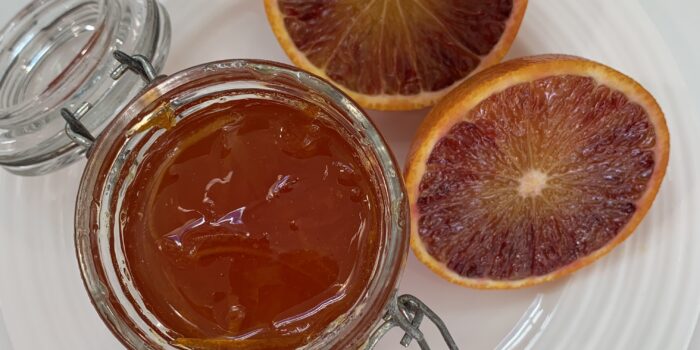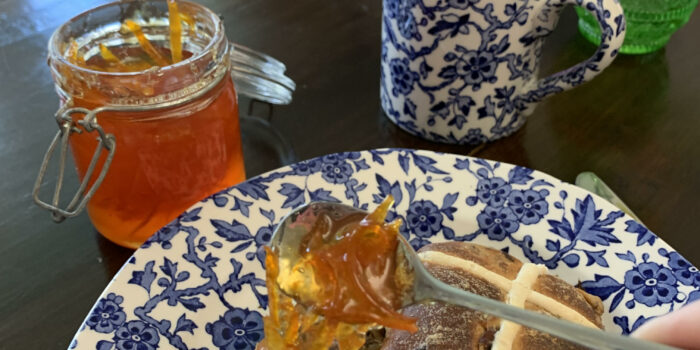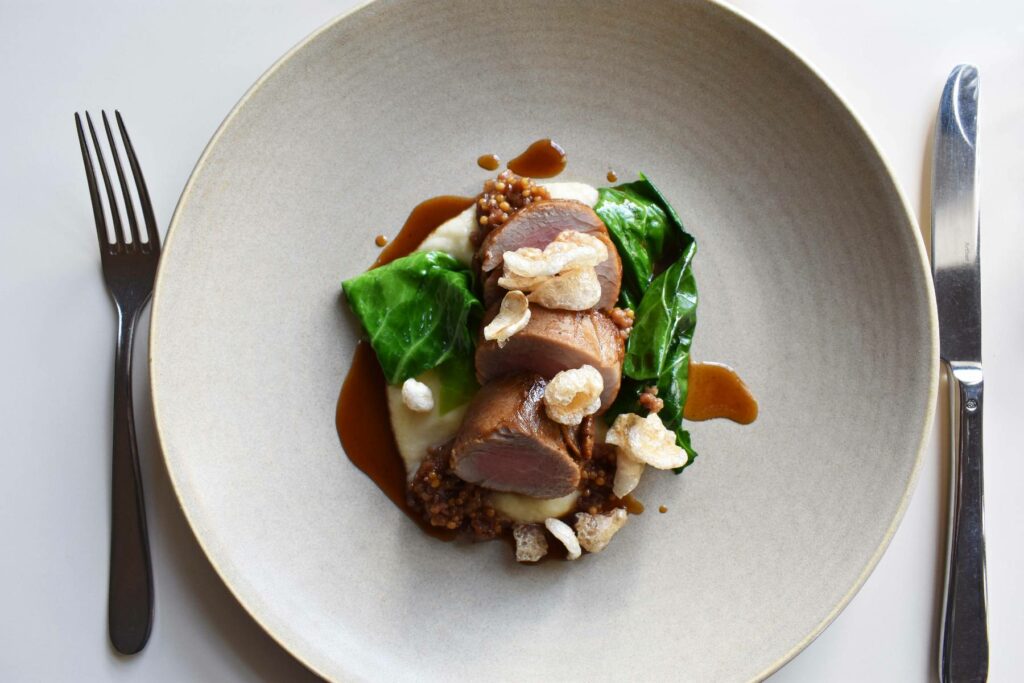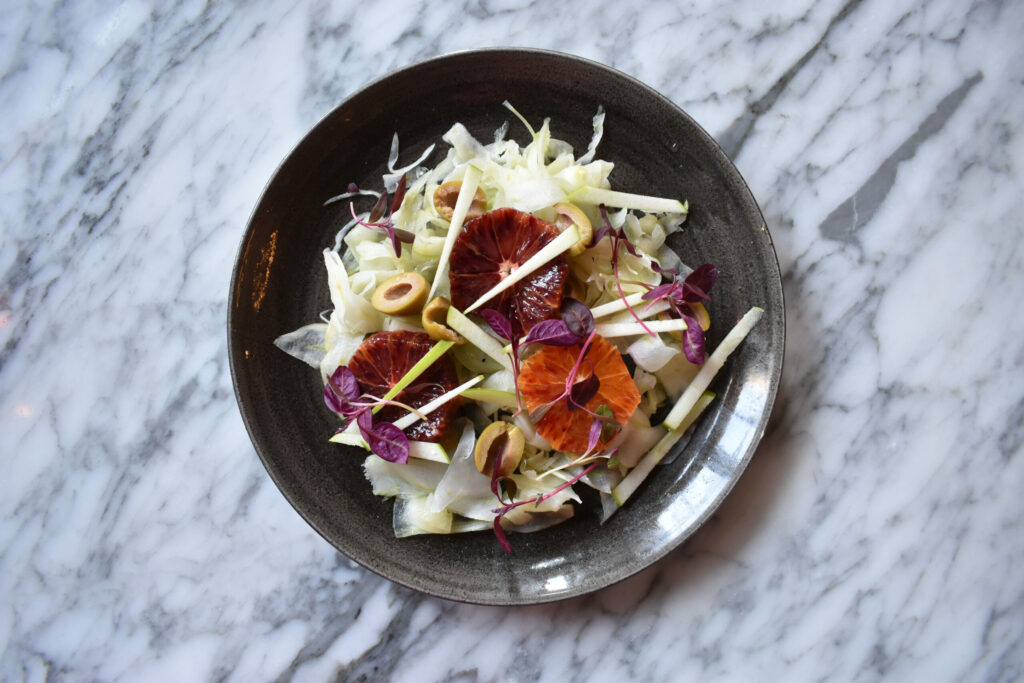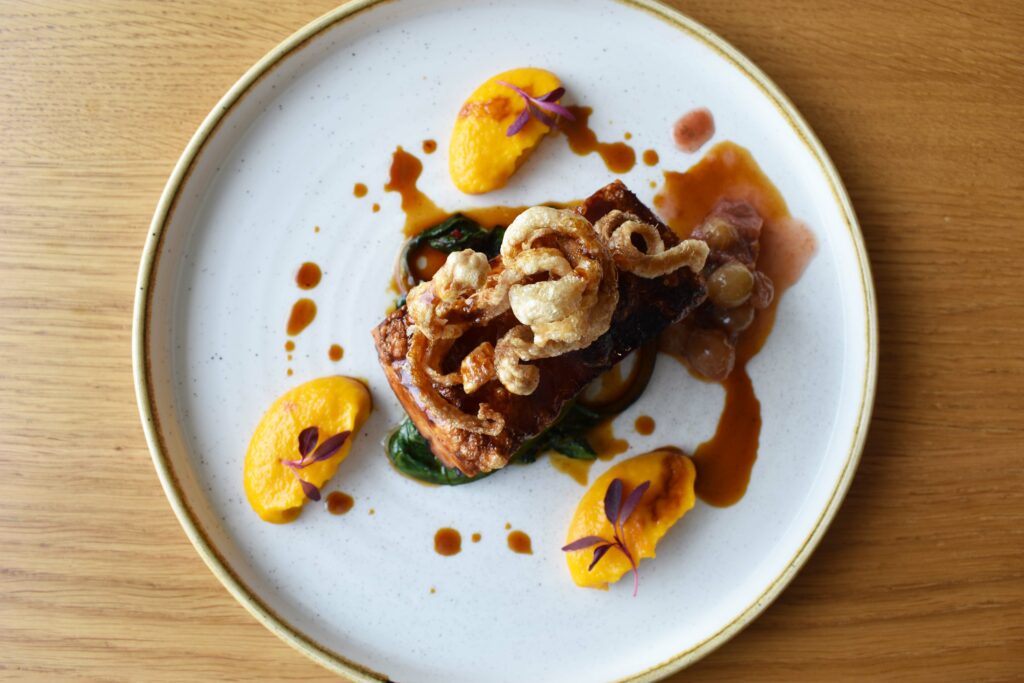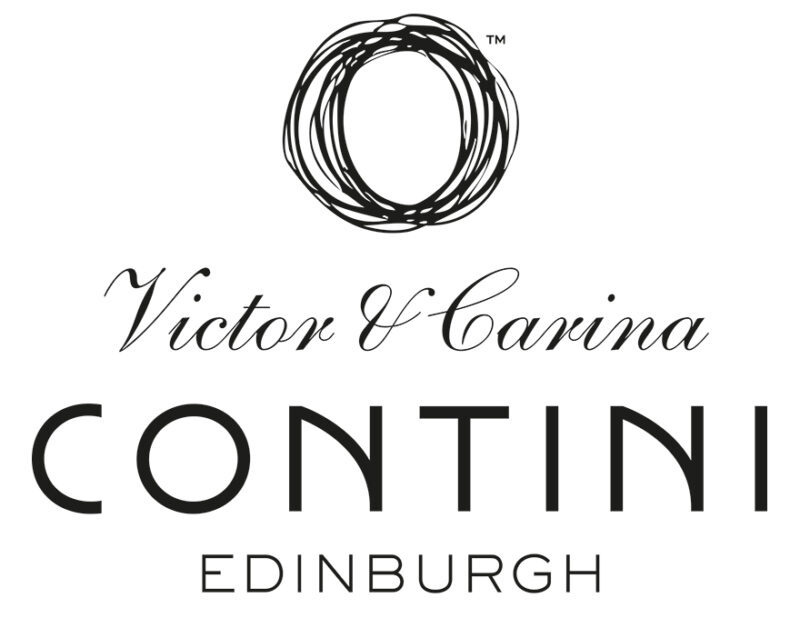In June last year I was given the honour of being asked to be the first Ambassador for the Royal Highland Education Trust. This is a charity that works with volunteers over Scotland to provide free educational activities and hands on learning opportunities linked to Curriculum for Excellence.
It’s purpose is to bring farming in all its form to the lives of young people. Understanding how crops grow, animal husbandry, veterinary sciences, horticulture, engineering to marketing to butchery. The range of roles involved in growing our food covers so many skills.
Last year I attended so many incredible events. Seeing first hand the enthusiasm children have around learning about their food is fabulous. The cheeky ones that bring a smile, the shy ones that know the answer, the over enthusiastic ones that just can’t help it and the wee ones that don’t know because they’ve never been taught but are desperate to learn. RHET does an incredible job and we are very lucky as a wider community to have them sharing knowledge and being open about good food.


First I went over to The Royal Highland Show Discovery Centre and a little baking got us started. Next off to Bruce Farms, Blairgowrie for National Potato Day in the middle of a field cooking gnocchi for hundreds of inquisitive primary school children. One boy suggested I should open a restaurant as I was really quite a good cook! Learnt about drones, different soil types, farming machinery and got a little sun tan in the process.
Then it was off to the Countryside Careers Day in partnership with the Prince’s Foundation Dumfries House. What felt like a dolls house farm gives a snapshot of farming practice in a stunning location. A massively untapped resource for future thought.
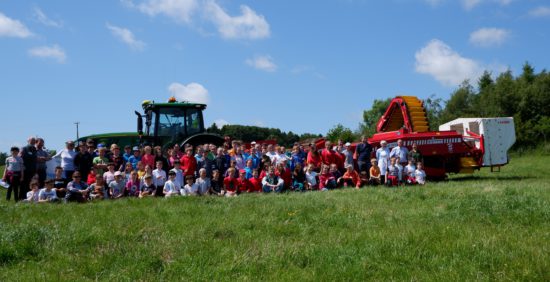
Time to head to the United Auction Market in Stirling. A pretend auction with a real live auctioneer and real animals including a llama and a goose. The children loved it. Never heard so much noise in my life. But the awareness of the value of our food and where it comes from was tangible.
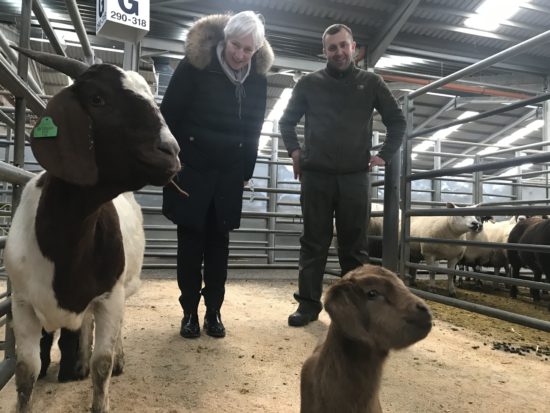

Finally we ended the year with tea and scones at The Scottish Cafe in December with the RHET Forth Valley Choir literally singing for their supper to help raise funds for future adventures.
These day trips for the children are adventures. If you can remember, I know I can just, a day trip away from school was the most exciting day of the year. I can still remember each trip in my primary years. Probably because we went to the zoo every year and we always went in February when it was bitterly cold and I usually fainted when we arrived at the hippos! I’ve always hated zoos but I loved spending my pocket money at the kiosk. The poor animals look so sad in those cages that are so far away from their natural homes. They were probably quite happy but it does make you think about the control humans have over other species and what we should do with it.
Images from the Australian bush fires of Koalas and Kangaroos literally hugging their rescuers does make you see animals emotional intelligence in a whole new way. I’ve no plans to eat Koala but cows, sheep, pigs, ducks, chickens and so much more are on my menu and will be for life. I can hear you say what’s the difference. The difference is a Koala is listed as an endangered species. Cows are bred for food. They have a happy life, if they have ethical breeders, and they provide vital calcium from their milk to iron from their meat that us humans desperately need to stay healthy.
The whole question of whether we should eat animals has become controversial. It shouldn’t be. Especially where we live in Scotland. But organisations that are funded largely by corporations with vested interest are skewing the arguments.
I dislike many of the programmes that are being broadcast with a pro anti meat stance. They are misinforming the public.
Ethical farmers respect and value their livestock. They treat them with reverence. They protect them from harsh environments, feed them, care for them but they don’t let them watch the telly with their children, get under the covers with them and then roast them for their supper.
Equally they don’t lock them up in a wee cages and ask people to pay to see them. The problem is far too much mass farming is overshadowing good practice. And ultra processed food on the back of this is the real issue.
The simple facts are the nutritional content of animal products from milk, to eggs to meat are vital for a healthy human diet. Besides the fact that most of us love the taste and the ritual of eating good quality food, being an omnivore, for most of us, is a pleasure that can’t be underestimated.
Growing animals for food consumption is environmentally friendly when animal welfare is at its heart. Eating animal products is good for humans, good for animals and good for the planet. There are hill sheep that are the only animals that can graze and live in these extreme environments. Mass production in any industry isn’t sustainable. And an ultra processed, additive, preservative laden cheap food industry is causing us harm. This has to be where our concerns are focused.
At each event I’ve met dozens of volunteers. Mostly farmers, farmers wives, farmers children, even BBC’s own Farmer Jim. Families who depend on the land to earn a living. They are providing jobs in rural environments that have a low impact and help feed us. We don’t have the luxury of unlimited flat green pastures where we can grow any crop we please with unlimited sunshine or water. We have a balanced food system that maximises what nature has given us. The feed that we give animals is either a buy product of our own food system or crops we grow that aren’t digestible by humans. Many of the non-animal foods that have to be grown to feed the growing demand are having far more negative environmental impacts.
Let me quote from a recent post by Joanna Blythman in Farmison.com
“We need to understand that pastured (grass-fed) livestock are an indispensable part of the traditional mixed farming system where animals and plants harness the sun’s energy to grow in harmony with nature as part of a virtuous biological loop”
The fact that ⅔ of our landscape in the UK is unsuitable for anything other than this style of farming is proof that we figured out a long time ago and it’s served us well. What’s not served us well is a move to processed and ultra processed foods, food fads that bring huge air miles to our plates, a possibility that lab grown meat may become part of our food chain, a move away from good fats and a rise in sugar and alcohol consumption. We need a balanced diet and we need a bio diverse food system to support this.
How could we feed ourselves if we were to remove meat products from our diet.
If we were to take food waste into account and reduce our overall calorie count we could do this even more easily we could even be healthily be self sufficient here in the UK.
I’m not sure if this is part of the UK or Scotland’s trade strategy but they should maybe think about it! The impact on the environment of more air miles and the detrimental impact to our health with less nutritional food that is older and often not in season because it has travelled the globe will come and bite us. Equally the environmental impact of flying salmon and beef around the world as exports also has to be considered.
Veganuary should be Betteranuary. Choose better meat but eat less. Cook better food at home (or in reputable restaurants that cook food not reheat processed food in a microwave) and don’t eat ultra processed food including all those sweet treats that we find hard to resist. Bacon, salame and sausages of quality are good. Don’t get hung up about foods that we’ve learnt to prepare inorder to use the whole animal so we don’t waste and so we can preserve it. Choose better chocolate, 70% minimum and eat less of it. Choose better wine and drink less of it. And follow this pattern all year and your body will thank you for it as will your pockets, pallets and your health.
Essential nutrients aside, my issue with a vegan diet, especially in Scotland in January, is simply that we don’t grow the range of foods we need to be healthy. The cost to the planet of the “air miles’ ‘ to transport avocados to soya milk to almonds to tofu must be taken into account. And even with the best of these flown straight to our fridges there is still a nutrient deficit that is ignored by the vested interest.
The problem is we’re spoilt. We’ve all got used to having what we want when we want it. The fashionistas and Hollywood celebs are brainwashing us into their claimed ethical eating regimes that will give you the bodies to match. Nonsense. A personal trainer and 4 hours a day in the gym will give you any body you want. Eating in season is nature’s way of looking after our health and well being and living in Scotland it serves us very well for at least 10 months of the year. We may like to substitute a little over the winter months with sunshine foods from warmer climates as kale for two months can be a challenge, but this is a small price to pay for a healthy and tasty lifestyle the rest of the year.
Being vegan but travelling long haul isn’t going to save the planet. Eating a lamb chop and having your holiday on the West Coast is a much better solution for you, our local communities and the wider world.
RHET keep educating our young children and give them the information to make good choices for their diets and we’ll be making a good start at realigning our knowledge of what good food really is for us and for the planet.






